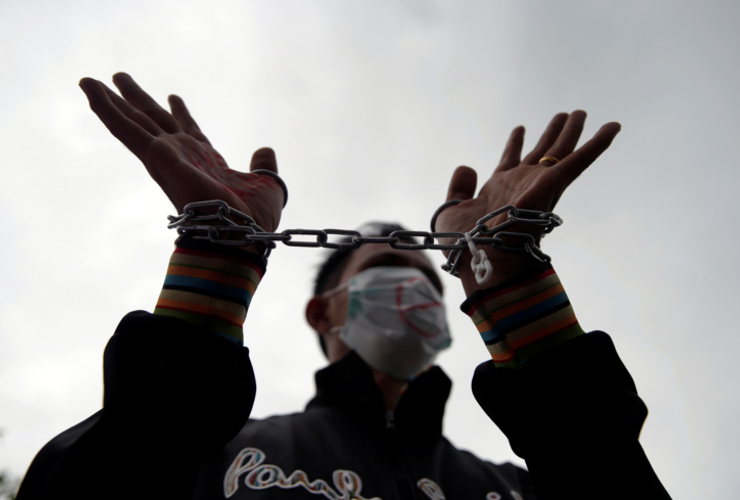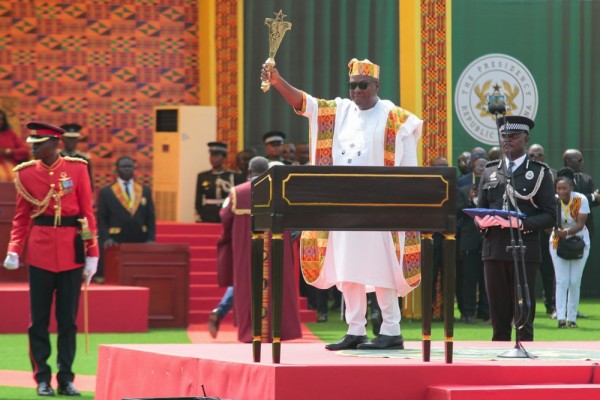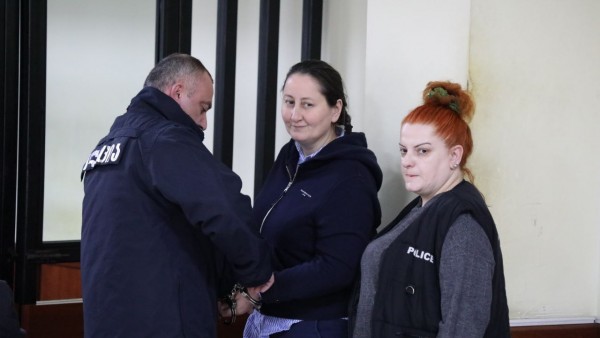Governments are increasingly clamping down on press freedom, as new laws are being enacted to curtail media independence around the world, while 55 journalists were killed since May last year.
In Bangladesh, journalists can face up to life imprisonment for violating the country’s new Digital Security Act. Egypt, which has jailed scores of journalists including IPI member Mahmoud Hussein of Al Jazeera, passed a media regulation law last October that makes it prohibitively expensive for online newspapers to get registered and allows the government to shut them down. The digital media law purportedly enacted in July to prevent spread of fake news is now being used by the Egyptian government to silence independent media. The Tanzanian government is using the Media Services Act and other laws to ban newspapers and suspend radio broadcasters.
With 139 journalists in prison, many more sentenced to jail terms, including IPI Executive Board member Kadri Gursel, and scores of others being prosecuted for doing their work, Turkey remains the world’s top jailer of journalists. The country’s crackdown on independent media widened in 2018 with the arrests of 46 more reporters, mostly on spurious terrorism-related charges. In Hungary, independent media are increasingly encircled by a state media machine and are being starved of advertisement revenue. In Pakistan, where critical media are subject to vicious smear campaigns, the government has stopped state advertising in the influential daily Dawn and targeted individual journalists, such as IPI World Press Freedom Hero Cyril Almeida, who faces treason charges for his coverage of militancy.
In the United States, the Department of Justice is contemplating changes in the guidelines to make it easier for prosecutors to obtain journalists’ records, while the U.S.’s criminal indictment against Wikileaks founder Julian Assange has raised concerns around broader implications for press freedom. In the United Kingdom journalists have opposed government’s move to enact new legislation that will allow police to access their data.
International Press Institute (IPI) Executive Director Barbara Trionfi sounded alarm on the occasion of World Press Freedom Day 2019.
“Press freedom globally is under intense and growing pressure, as illiberal-minded governments seek to shut down critical voices and, in many cases, deliberately erode the credibility of independent media”, she said. “We are witnessing a dangerous combination of tried-and-true methods of attacking the press – including arbitrary jailings and physical attacks that end in impunity – as well as a new wave of rhetoric and smear campaigns to portray the media and journalism as an enemy of the people so as to undercut the press’s watchdog role.”
She added: “We need a robust response to these developments from governments and international institutions that continue to value fundamental rights; this is not a time to sit on the sidelines.”
The International Press Institute (IPI), a global network of editors, journalists and media executives, tracks attacks on and threats to press freedom. Since 1997, IPI’s Death Watch has tallied journalists deliberately targeted because of their profession and those who lost their lives while covering conflict or while on assignment.
While on the one hand governments are attempting to curtail press freedom, on the other journalists around the world are being killed with impunity. Since last May, as many as 55 journalists have lost their lives, at least 18 of whom were targeted for their work. That figure includes journalists like Ahmed Hussein-Suale of Ghana, who was shot dead on January 16. He was a key member of the Tiger Eye, an investigative journalism group led by famed undercover report Anas Aremeyaw Anas. The group had received several death threats in the past for their investigative reports.
A possible rare bright spot in emerged in Slovakia, where authorities in February announced the indictment of the suspected mastermind behind the 2018 murder of investigative reporter Jan Kuciak.
Besides killings, in the past year journalists have faced an increasing number of physical attacks and arrests while carrying out their work. At least 79 journalists were arrested in Sudan between December and February while covering protests against the now-ousted regime of Omar al-Bashir. More than 45 journalists were attacked and arrested in Venezuela covering the civil unrest against the Nicolas Maduro government and this number is continuing to increase. According to data collected by IPI, some 70 cases of arrests of journalists globally were reported in the first quarter of this year.



